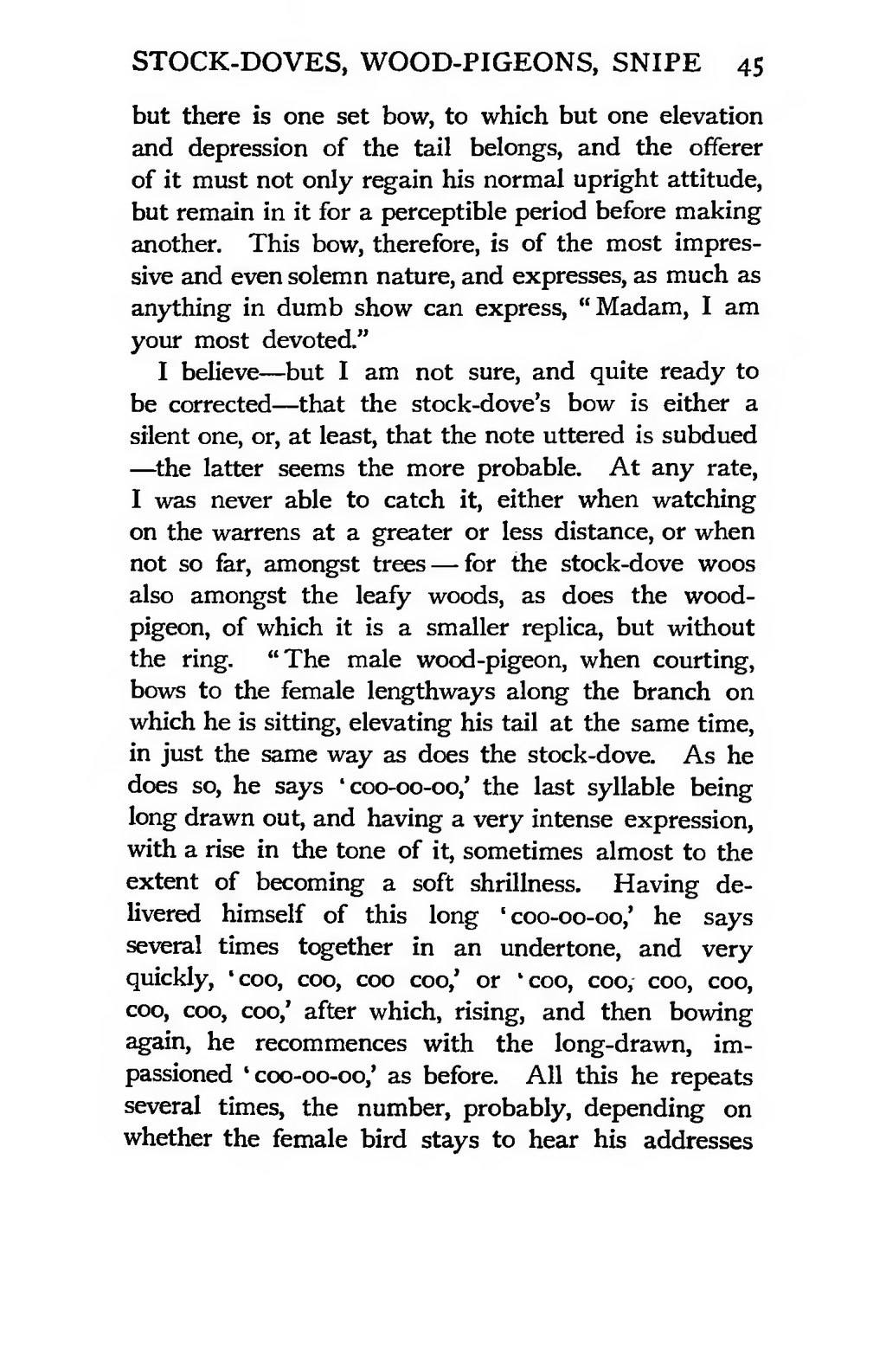but there is one set bow, to which but one elevation and depression of the tail belongs, and the offerer of it must not only regain his normal upright attitude, but remain in it for a perceptible period before making another. This bow, therefore, is of the most impressive and even solemn nature, and expresses, as much as anything in dumb show can express, "Madam, I am your most devoted."
I believe—but I am not sure, and quite ready to be corrected—that the stock-dove's bow is either a silent one, or, at least, that the note uttered is subdued—the latter seems the more probable. At any rate, I was never able to catch it, either when watching on the warrens at a greater or less distance, or when not so far, amongst trees—for the stock-dove woos also amongst the leafy woods, as does the wood-pigeon, of which it is a smaller replica, but without the ring. "The male wood-pigeon, when courting, bows to the female lengthways along the branch on which he is sitting, elevating his tail at the same time, in just the same way as does the stock-dove. As he does so, he says 'coo-oo-oo,' the last syllable being long drawn out, and having a very intense expression, with a rise in the tone of it, sometimes almost to the extent of becoming a soft shrillness. Having delivered himself of this long 'coo-oo-oo,' he says several times together in an undertone, and very quickly, 'coo, coo, coo coo,' or 'coo, coo, coo, coo, coo, coo, coo,' after which, rising, and then bowing again, he recommences with the long-drawn, impassioned 'coo-oo-oo,' as before. All this he repeats several times, the number, probably, depending on whether the female bird stays to hear his addresses
